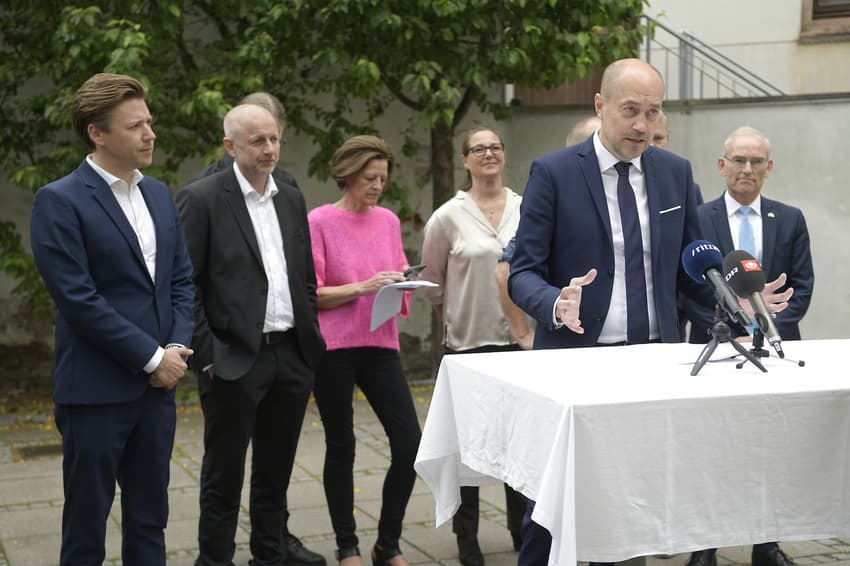How will Denmark's health reform change country’s health services?

Junior doctors will spend more time in general practice during their training and 25 new local hospitals will be opened under a new health sector reform announced on Friday.
An agreement for the reform was presented by the government on Friday with the backing of a parliamentary majority.
The deal had been delayed with the Covid-19 crisis among the obstacles which drew out its completion.
It provides for 6.8 billion kroner of spending on the Danish health service over the next eight years, Health Minister Magnus Heunicke told media on Friday.
“We have an agreement for a health reform that will support local health services. Many parties are with us. (The deal) could not have broader support,” he said.
Parties on both sides of Denmark’s political aisle are in agreement over the deal, with Martin Geertsen, health spokesperson with the opposition Liberal (Venstre) party, calling it “a good little deal”.
“Does this agreement solve all the challenges faced by the Danish health service going forward? No. Certainly not. It’s a good little deal. It’s a step in the right direction,” Geertsen said.
The health spokesperson with the left-wing party Red Green Alliance, Peder Hvelplund, likewise characterised the reform as a small but positive step that does not solve all of the problems within the health system currently.
In an earlier version of the deal, proposed by the governing Social Democrats, up to 20 local hospitals – around the size of extended, large health centres – were proposed. The location of the centres that will be opened or built under the reform is not clear at the current time.
The new, local centres could potentially be located in former hospital premises.
The government also proposed a form of compulsory service which junior doctors would have to complete as part of their training, involving working for an experience GP. This will be undertaken as part of doctors’ studies under the terms of the reform.
This means that young doctors will spend an extra six months working at GP surgeries and spend less time at hospitals.
Earlier health proposals by the government related to additional restrictions on tobacco and alcohol sales do not form part of the agreement announced on Friday.
Negotiations over those proposals will take place separately, Heunicke said.
“Next week we will open negotiations on the remaining elements relating to prevention (of smoking and excessive alcohol consumption). It was the right thing to do to split things up because we got this broadly-supported agreement,” he said.
READ ALSO:
Comments
See Also
An agreement for the reform was presented by the government on Friday with the backing of a parliamentary majority.
The deal had been delayed with the Covid-19 crisis among the obstacles which drew out its completion.
It provides for 6.8 billion kroner of spending on the Danish health service over the next eight years, Health Minister Magnus Heunicke told media on Friday.
“We have an agreement for a health reform that will support local health services. Many parties are with us. (The deal) could not have broader support,” he said.
Parties on both sides of Denmark’s political aisle are in agreement over the deal, with Martin Geertsen, health spokesperson with the opposition Liberal (Venstre) party, calling it “a good little deal”.
“Does this agreement solve all the challenges faced by the Danish health service going forward? No. Certainly not. It’s a good little deal. It’s a step in the right direction,” Geertsen said.
The health spokesperson with the left-wing party Red Green Alliance, Peder Hvelplund, likewise characterised the reform as a small but positive step that does not solve all of the problems within the health system currently.
In an earlier version of the deal, proposed by the governing Social Democrats, up to 20 local hospitals – around the size of extended, large health centres – were proposed. The location of the centres that will be opened or built under the reform is not clear at the current time.
The new, local centres could potentially be located in former hospital premises.
The government also proposed a form of compulsory service which junior doctors would have to complete as part of their training, involving working for an experience GP. This will be undertaken as part of doctors’ studies under the terms of the reform.
This means that young doctors will spend an extra six months working at GP surgeries and spend less time at hospitals.
Earlier health proposals by the government related to additional restrictions on tobacco and alcohol sales do not form part of the agreement announced on Friday.
Negotiations over those proposals will take place separately, Heunicke said.
“Next week we will open negotiations on the remaining elements relating to prevention (of smoking and excessive alcohol consumption). It was the right thing to do to split things up because we got this broadly-supported agreement,” he said.
READ ALSO:
Join the conversation in our comments section below. Share your own views and experience and if you have a question or suggestion for our journalists then email us at [email protected].
Please keep comments civil, constructive and on topic – and make sure to read our terms of use before getting involved.
Please log in here to leave a comment.